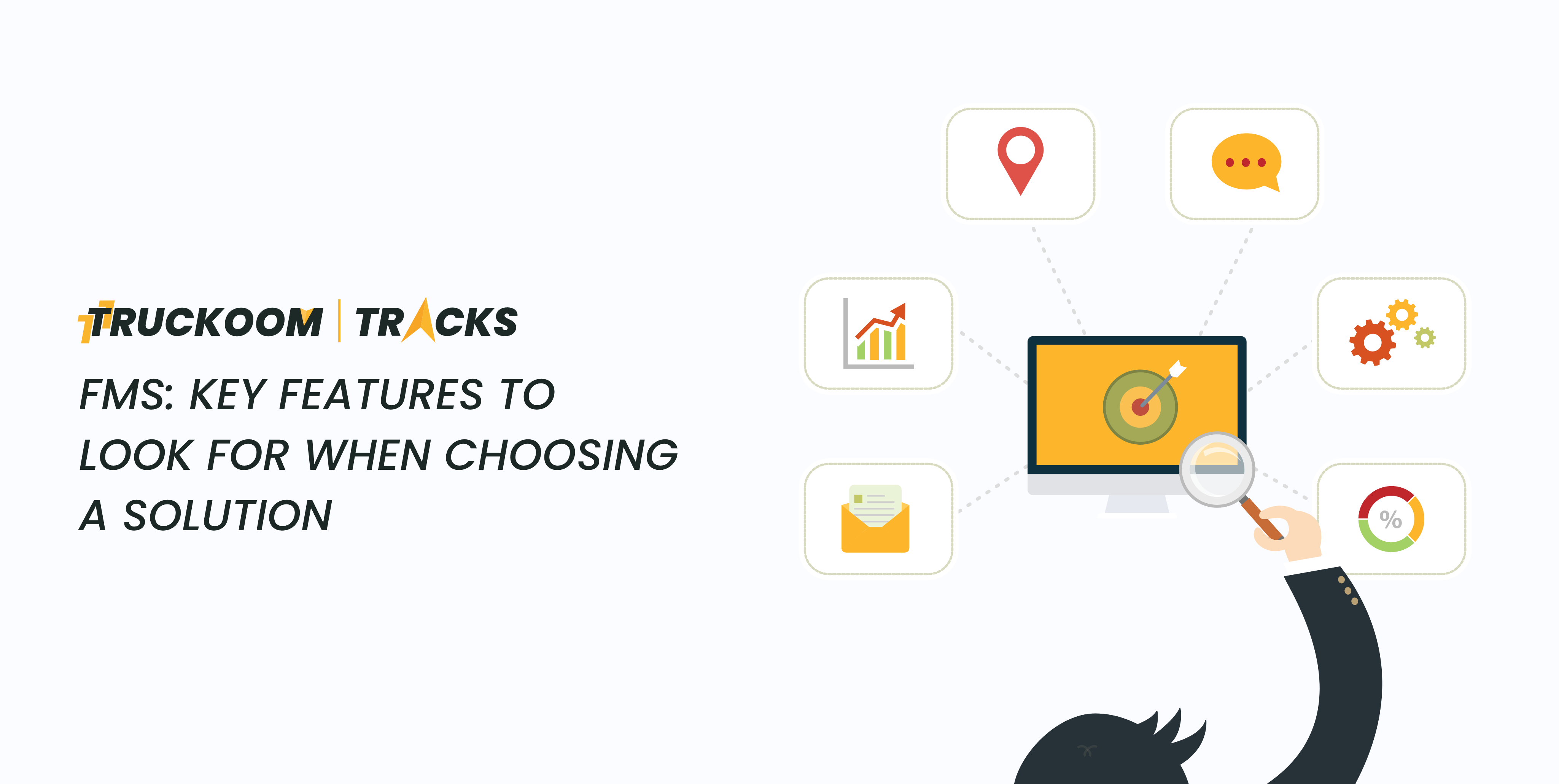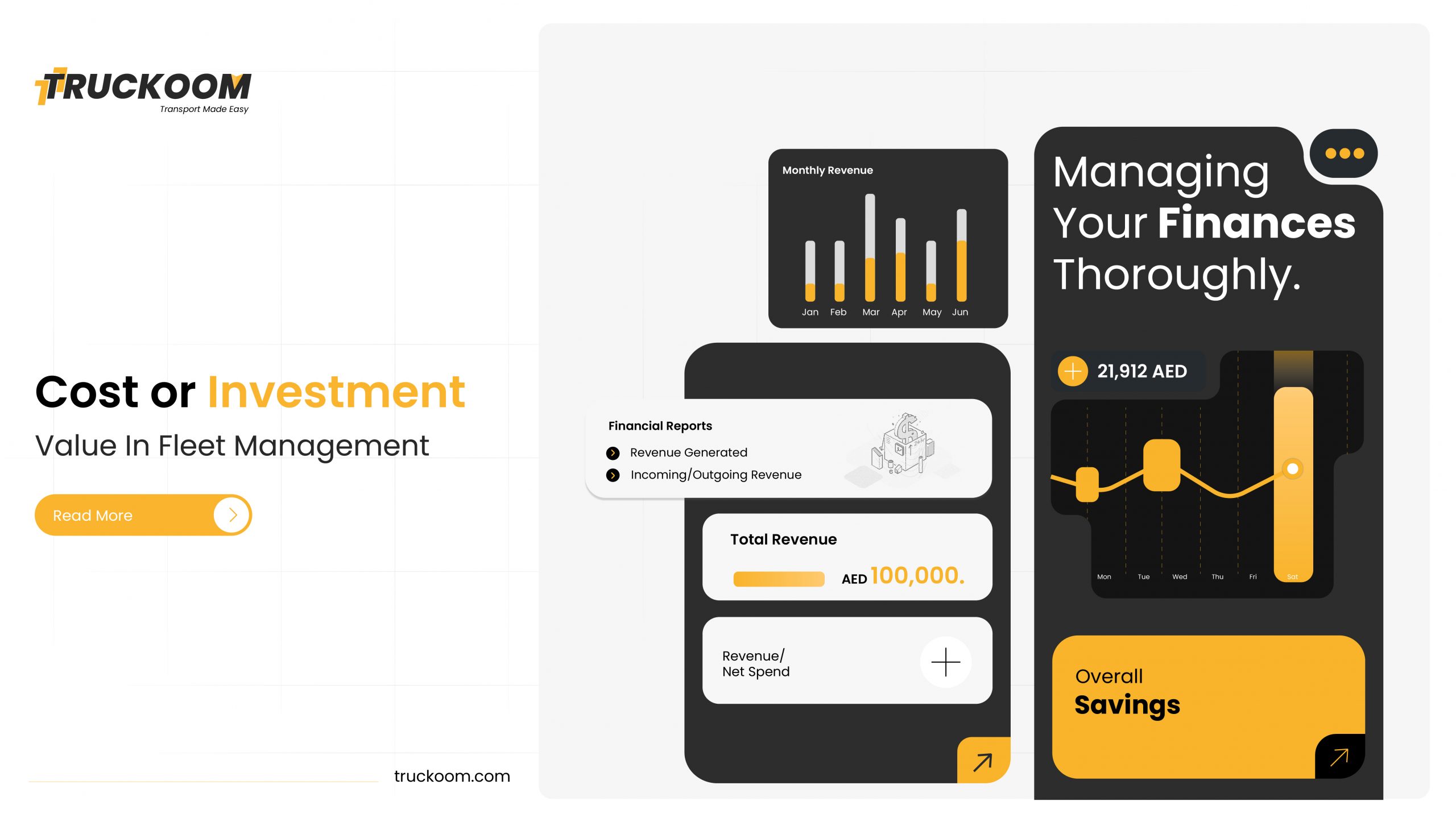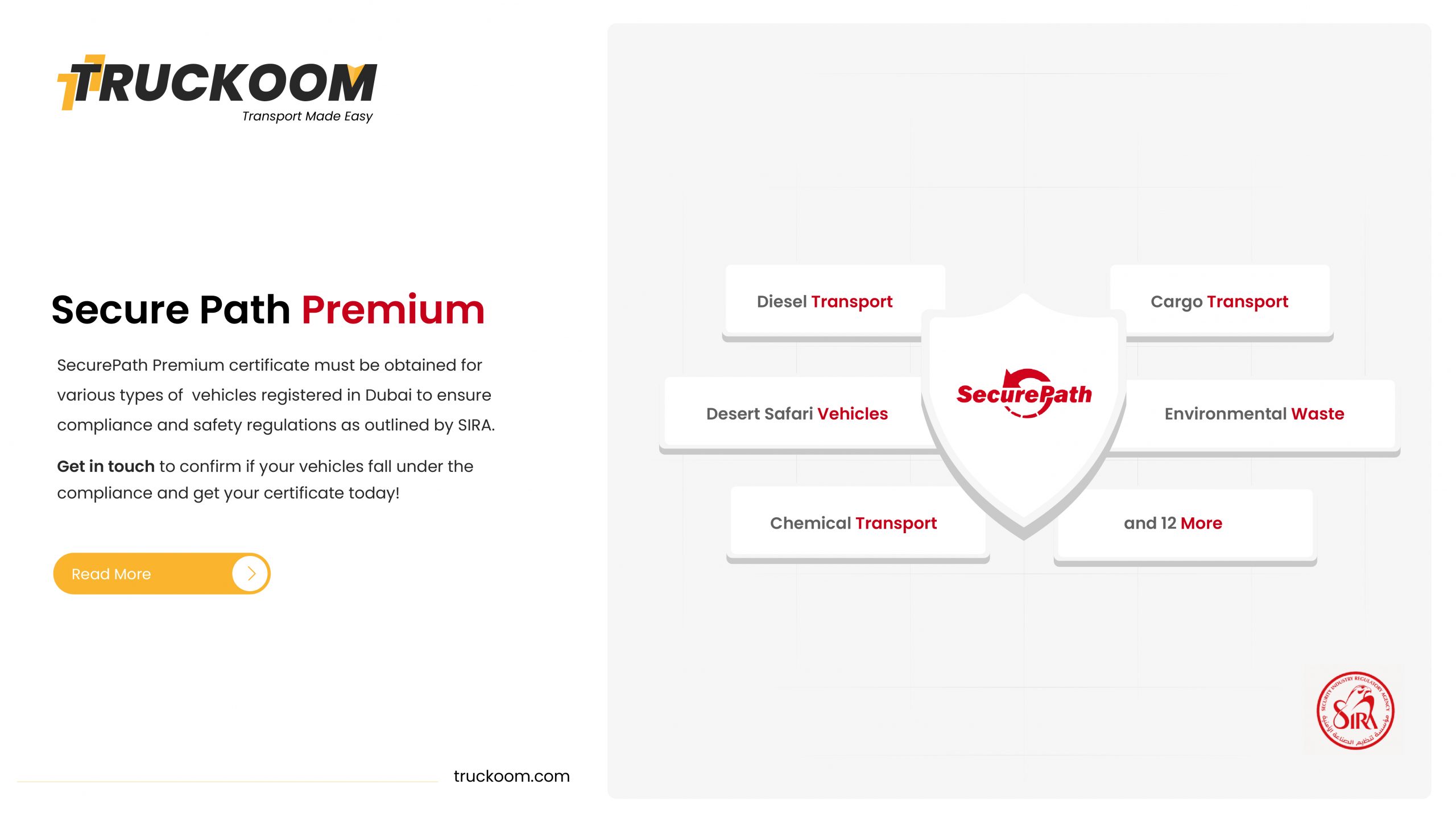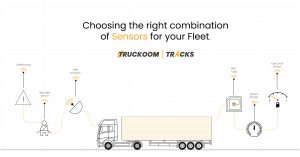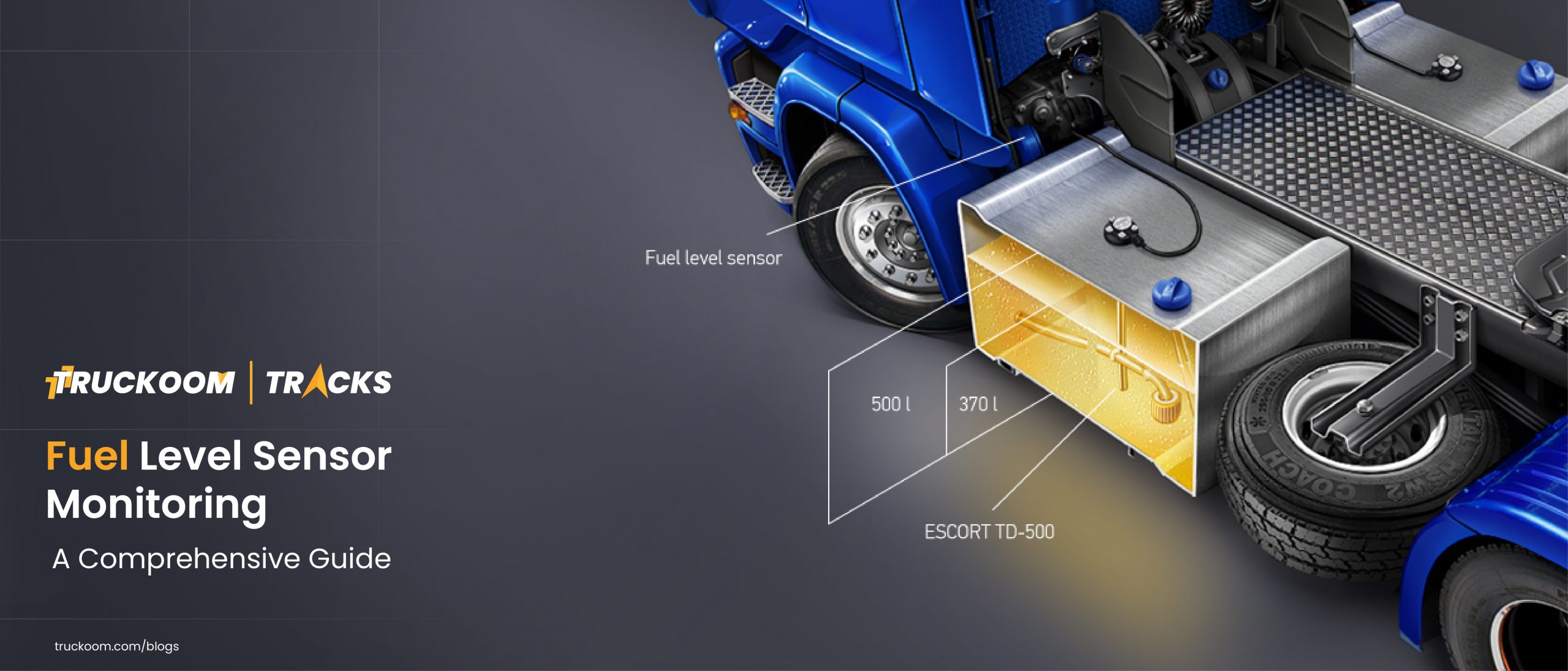Fleet management software is a powerful tool that can help businesses optimize their operations and improve customer service. It provides real-time tracking and monitoring of vehicles, route planning, and optimization capabilities, communication and collaboration tools, reporting and analytics functions, integration with other systems, scalability, and flexibility to accommodate changing needs, a user-friendly interface for all stakeholders to access the system quickly, as well as robust security measures for data protection. This article will discuss the key features to look for when choosing software so you can decide which solution best suits your business needs.
Introduction to Fleet Management Software and its importance
It is a critical asset for businesses that rely on a fleet of vehicles. This type of software tracks, monitors, and manages all operations related to the utilization and maintenance of vehicles, including driving routes, fuel consumption, tire performance, and vehicle health. Businesses can optimize their fleets more efficiently and effectively by leveraging data from fleet management products. Additionally, it allows them to detect any risks or breakdowns before they occur, which can help cut down on costs associated with repairs, replacement parts, and other expenses. Access to these analytics helps managers make informed decisions about their fleet that drive efficiencies in day-to-day operations, support safe driving practices, and improve overall safety for drivers and other road users. Ultimately, this technology is rapidly becoming integral in helping businesses run their fleets more smoothly while improving customer service.
Tracking and Monitoring
The ability to track, monitor, and analyze the performance and operations of vehicles in real-time is an essential part of modern-day transportation. Through GPS tracking and other measures, organizations can gain detailed insights into their fleet operations and take preventative action against potential risks or unwanted events. Advanced fleet management technologies allow reliable fuel consumption monitoring, saving money on unnecessary expenses. Additionally, having access to maintenance schedules helps maintain vehicles’ condition while in use, thus minimizing potential disruptions caused by unexpected malfunctions or breakdowns. Such flexibility translates into productivity savings as well as improved customer experience. Real-time tracking and monitoring of vehicles is beneficial for transportation companies and allows them to reconnect with customers and be more responsive in a dynamic environment. All these benefits ultimately help organizations gain a competitive edge over their rivals and increase their cost efficiency in the long run.
Route Planning and Optimization
It is an invaluable tool for anyone responsible for route planning and optimization of fleets of vehicles. By accurate mapping, tracking, and analyzing routes, this software can ensure that a driver’s route takes the most efficient path, saving time and money simultaneously. Moreover, it helps you get notified when a vehicle enters or leaves specific areas. Data gathered from optimized routes can also be used to adjust routes if needed, allowing the fleet to continuously improve its efficiency associated with cost savings over time. In addition to optimizing existing routes, this essential technology enables you to easily plan new routes by utilizing multiple data sources in one place. Furthermore, fleet management solutions, including real-time analytics, allow operators to have up-to-the-minute visibility into their entire operation and make informed decisions quickly. With such advanced tools as Geo-Fencing, predictive analysis, and AI-enabled route optimization available in many fleet management systems today, it has never been easier to optimize and save resources while ensuring safety standards are met at every step.
Communication and Collaboration
Fleet management software can revolutionize communication and collaboration between a business’s drivers, dispatchers, and managers. It provides an efficient gateway for organization members to share data, access critical information quickly, and coordinate operations. Drivers benefit from constantly communicating with their dispatcher without pulling over to make non-emergency calls or texts. They can keep up with their daily tasks using the software’s scheduling functions. Dispatchers have an up-to-date view of the location of the vehicles and any potential delays via real-time GPS tracking features. Management has the benefit of optimization and visibility into each leg of a journey so they can adjust operations accordingly within moments if needed. The timeliness of this information also helps them manage customer service because they can catch potential problems as soon as they arise and have time to deliver solutions that meet or exceed expectations.
Reporting and Analytics
Businesses worldwide are utilizing fleet management software to help simplify their operations and reduce costs. A significant component of maximizing the benefits of this technology is having robust reporting and analytics capabilities, including the ability to generate custom reports and track key performance metrics. This functionality helps businesses gain real-time insight into their operations, enabling them to make informed decisions regarding everything from asset utilization to fuel management. Understanding how their various assets perform, they can proactively make changes that lead to cost savings and other efficiencies. It also helps them anticipate problems before they arise, improving customer service delivery and satisfaction with fewer resources required. With so many advantages, it’s easy to see why robust reporting and analytics capabilities are essential.
Integration with Other Systems
Fleet management software can be integral to helping companies streamline their operations and make more informed decisions. By integrating with other systems, such as accounting, inventory management, and ERP systems, It can comprehensively view the company’s operations from a financial and operational perspective. On the financial side, these integrations enable a detailed analysis of costs so that budgeting decisions can be made with accuracy. From a functional standpoint, asset utilization data can be integrated to enhance efficiency and maximize return on investment. Data insights gained through integration can also be used to improve customer service by providing near real-time asset location data and helpful historical trends when troubleshooting or providing accurate delivery estimates. All in all, businesses that leverage comprehensive fleet management solutions will have access to analytics necessary to make informed choices while maximizing cost savings potential and efficiency of operations.
Scalability and Flexibility
With the world constantly changing, businesses need a fleet management software solution that is both adaptive and scalable. Such a system needs to be flexible enough to keep up with changes in business needs and grow with the company over time. Scalable systems should offer numerous features such as track maintenance, fuel monitoring and optimization, route optimization, and impact analysis capabilities that can be applied across all of a company’s vehicles. Regardless of a business’s size or complexity, its software needs to scale appropriately while providing maximum value. Additionally, it is beneficial for companies to choose an agile fleet management platform that enables customers to continuously add modules or make modifications as required so they can ensure their systems are kept up to date. With the right solution in place, businesses will remain competitive and be prepared for any eventuality that might come their way.
User-Friendly Interface
Fleet management software should have a user-friendly interface to ensure efficient use by all stakeholders. The more intuitive and straightforward an interface is, the easier it is for everyone to access and utilize fundamental features with minimal disruption. With these valuable aspects in mind, fleet managers can make more informed decisions with greater confidence. A well-designed UI can help companies increase operational efficiency and provide real-time intelligence on the status of their fleets. Additional features such as tracking vehicles, managing maintenance schedules, monitoring driver performance, and deploying route updates/navigation can be quickly accessed when navigating an organized interface. Investing in user-oriented systems not only streamlines workflow but helps strengthen communication between drivers and logistics teams in a way that leads to better outcomes across the company’s entire infrastructure. Considering this, cultivating a user-friendly experience must be prioritized if any business wants to ensure they employ effective fleet management strategies.
Security and Data Protection
Truckoom’s fleet management software utilizes robust security and data protection measures to assure its customers that their sensitive data is safe and secure. Truckoom’s innovative technology includes encryption, asset tracking, and access controls to protect customer credentials and other sensitive business information. Truckoom also incorporates regular risk assessments and other processes, such as cryptographic key storage, to determine all potential risks and vulnerabilities associated with their software. Furthermore, Truckoom has implemented industry standard two-factor authentication for user accounts to prevent unauthorized access or damage. Truckoom is committed to proactively monitoring all of the security measures provided within its software, including making any necessary changes or enhancements on an ongoing basis. The importance of protecting customer data cannot be overstated. Without proper security protocols in place, customers are at risk of a data breach which can lead to costly losses in terms of exposing personal information and associated reputational damage for both Truckoom and its customers. Therefore, Truckoom is dedicated to providing leading-edge security solutions that will give its customers peace of mind regarding the safety of their sensitive information.
Conclusion and Recommendations
Trucks by Truckoom is a comprehensive software solution that allows businesses to streamline operations. This system offers quality features such as GPS tracking that provides real-time vehicle location data, details on speed, fuel usage, and driver behaviors, and an intuitive interface, providing helpful analytics and insights. Truckoom also integrates all kinds of third-party applications to enhance efficiency. When choosing a fleet management software solution, businesses should look for reliable security measures. Truckoom satisfies these criteria by having encryptions for data storage and state-of-the-art authentication protocols. Truckoom is also flexible, allowing customers to pay only for what they use, making it cost-effective and scalable to any size organization. Truckoom has all the necessary features for businesses looking to implement an effective fleet management system.
